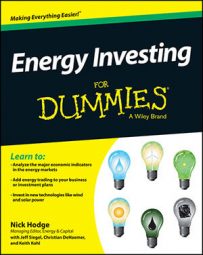Energy investors need to understand how oil is classified. The terms conventional and unconventional simply relate to how the oil is produced. Whether conventional or unconventional, it’s all still crude oil. Variations in the oil’s makeup are what determine how it’s classified and sold.
Crude quality is measured in terms of density (light or heavy) and sulfur content (sweet or sour).
The first property of the oil that matters is the density, or viscosity, which equates to how gooey the oil is. This is measured by its gravity on the American Petroleum Institute (API) scale. Light crude has an API gravity higher than 31.1 degrees, medium crude between 22.3 degrees and 31.1 degrees, and heavy oil lower than 22.3 degrees.
The higher the number, the lighter the crude. Oil that’s too viscous to flow on its own, like that produced from Canada’s oil sands, is called bitumen and has an API gravity lower than 10 degrees.
The second difference is sulfur content. To turn crude oil into the products people use every day, the sulfur must first be removed. To be considered sweet, the crude must contain less than 0.5 percent sulfur. If it contains any more than this, the oil is considered to be sour.
The lighter and sweeter the crude, the easier and cheaper it is to refine it into the products people use, like gasoline. Because production of conventional oil has peaked, the remaining oil will get progressively heavier and sourer. If you’ve filled up your tank in the past five years, you’ve seen firsthand how this is playing out at the pump.
When traded as a commodity, light, sweet crude fetches a higher price than heavier, sourer crude because it’s cheaper to process, and more value-added products can be made from it.

